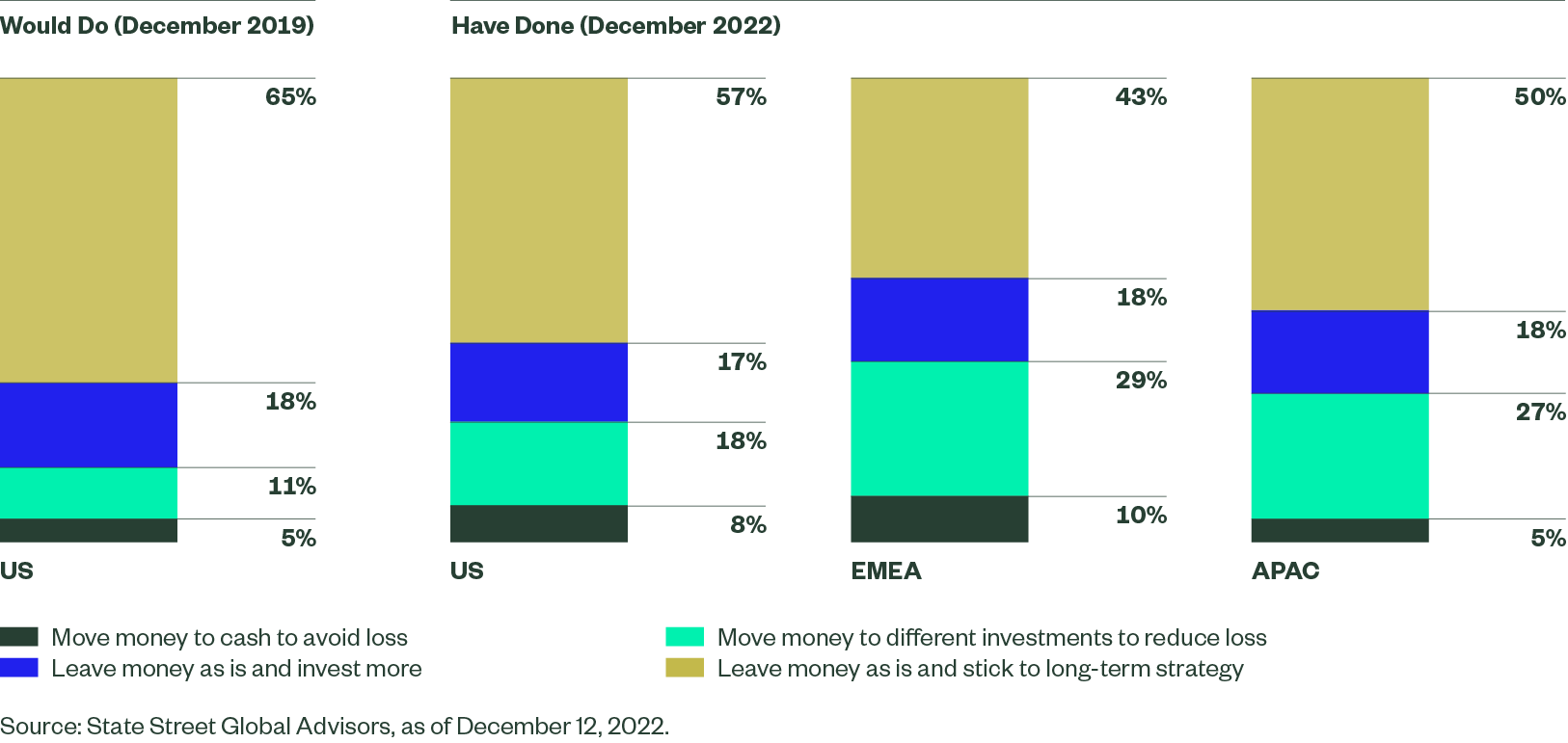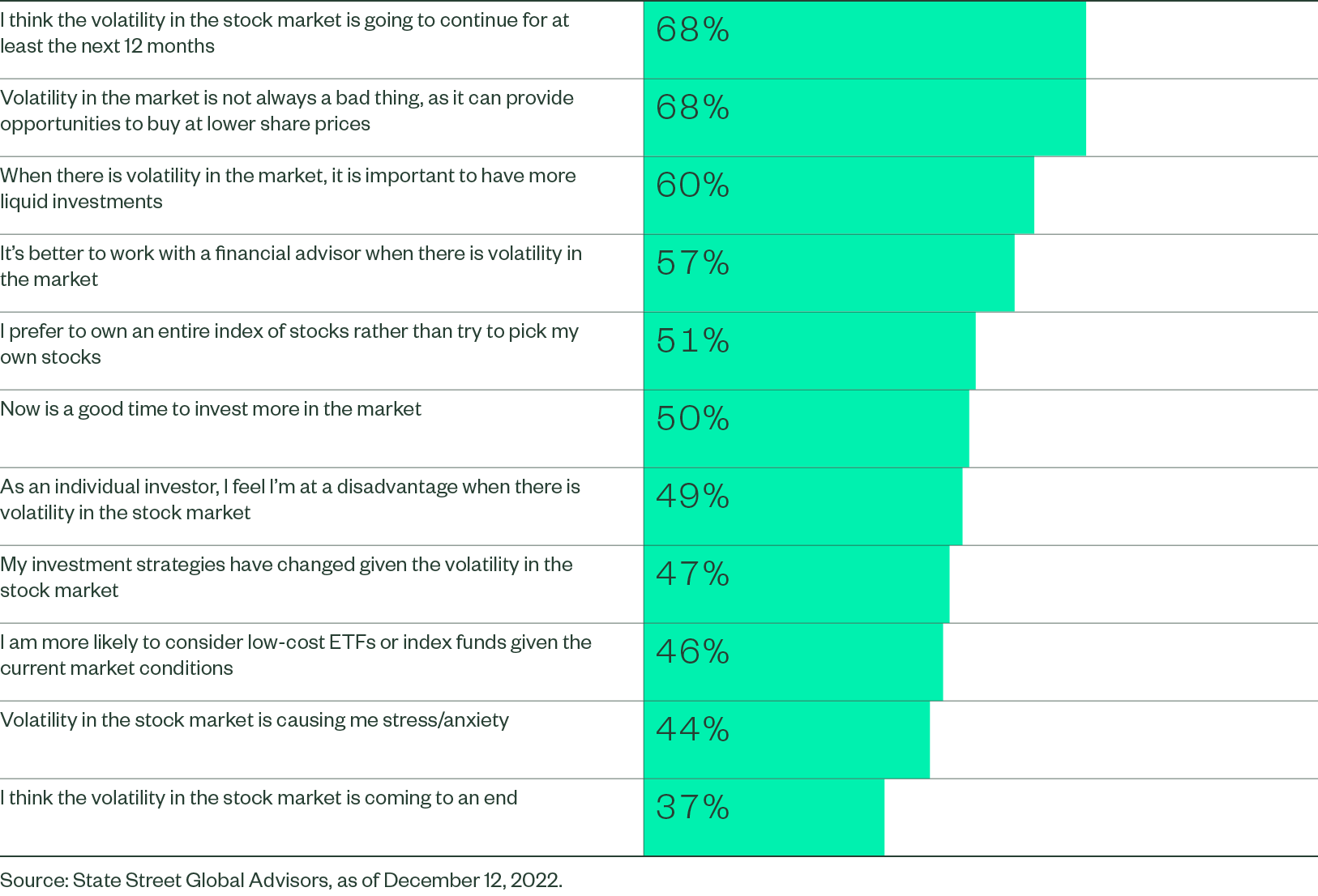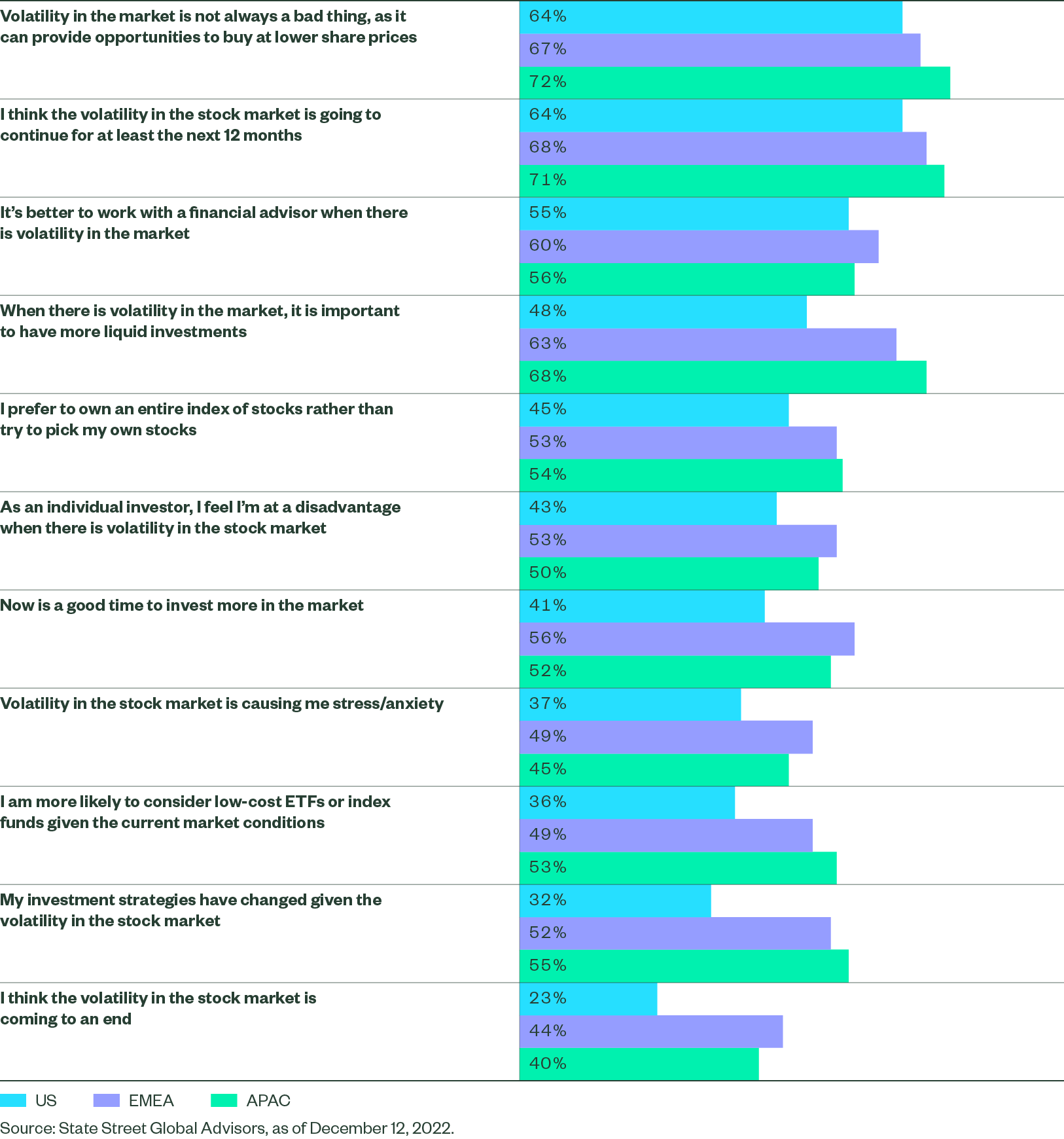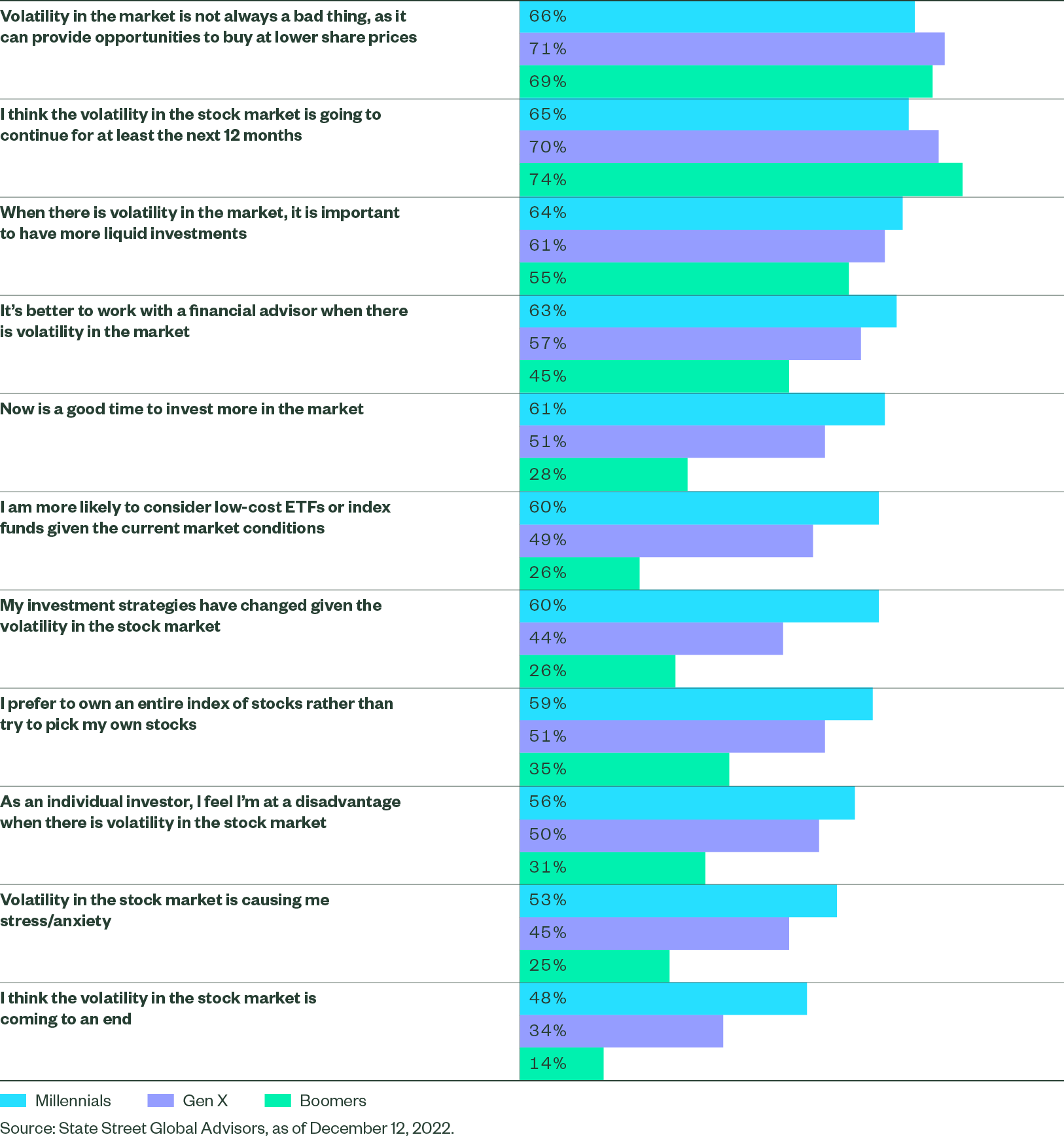Coping with Uncertainty: Investors Ride the Waves of Market Stress
- Nearly 70% of investors believe the volatility in the stock market is going to continue for at least the next 12 months.
- Six in ten investors say that it is important to have liquid investments when there is volatility in the market.
- More than half of investors think that ETFs offer more liquidity to respond rapidly to market changes (52%) and can mitigate risk better in volatile markets compared to other investments (51%).
Investors Have Varying Degrees of Comfort with Volatility
65% of ETF investors around the world say that they are comfortable with the highs and lows of the financial markets, versus investors without ETFs (41%).
Collectively, about half of investors are comfortable with the highs and lows of the financial markets. But more investors in EMEA and APAC are comfortable with the current market volatility than those in the US.
We also found that, across the globe, younger generations were more comfortable with the highs and lows of the financial markets than those in or nearing retirement age.
Comfortability with Volatility Impacts Investment Behavior
Just under half of investors say that they have left their money as is and stuck to their long-term plan despite financial market volatility. A quarter say that they have moved money to different investments to reduce loss.
In a study we conducted in 2019,1 83% of US investors said that they would leave their money as is, even during volatile markets, to stick with their long-term strategy — and potentially invest even more.
But faced with the volatility of the current environment, less US investors stuck to what they said they would do in 2019. Instead, they moved their money to other investments to curb losses.
And when comparing against US trends, even more investors in EMEA and APAC moved money to different investments to reduce loss.
Figure 5: Investors’ Short-Term Volatility Behavior
A US Trend and Global Comparison

Looking at the data through a different lens, older generations had a tendency to leave their money as is and stick to their long-term strategies. Millennials were most likely to either invest more or move money to other investments in an attempt to reduce loss.
Investors Have a Wide Range of Attitudes Toward Market Volatility
More than two-thirds of investors globally say that the stock market’s volatility is going to continue for the next 12 months — or longer. The same proportion, however, also believes that volatility in the market is not always a bad thing, as it can provide opportunities to buy at lower share prices.
Figure 7: Ranking Investors’ Attitudes Toward Market Volatility
Determined by the Percentage of Investors Who Agreed

agree that when there is market volatility, it is important to have more liquid investments.
prefer to own an entire index of stocks rather than pick their own stocks — and they’re more likely to consider low-cost ETFs or index funds given the current market conditions.
Source: State Street Global Advisors, as of December 12, 2022.
Investors in EMEA and APAC had a more positive response to statements like the following:
- It is important to have more liquid investments
- I prefer to own an index of stocks
- I’m more likely to consider low-cost ETFs
Figure 8: Ranking Investors’ Attitudes Toward Market Volatility
Determined by the Percentage of Investors in Each Region Who Agreed

Figure 9: Ranking Investors’ Attitudes Toward Market Volatility
Determined by the Percentage of Investors in Each Generation Who Agreed

What Are Investors’ Top Financial Concerns in Today’s Volatility?
Around the world, rising inflation is the greatest concern among investors, followed by their respective country’s economic outlook and rising taxes.
Fewer investors are concerned about the structure of their investment portfolio given the volatility in the stock market.
Figure 10: Investors’ Top Financial Concerns
Determined by the Percentage of Investors Who Agreed

When looking at the data by region, investors in EMEA, APAC, and the US are all concerned about external factors, like rising inflation and each country’s economic outlook. More investors in EMEA and APAC are concerned about personal circumstances, particularly maintaining their current standard of living.
Figure 11: Investors’ Top Financial Concerns
Determined by the Percentage of Investors in Each Region Who Agreed

Are Financial Advisors Adding Value During Times of Market Stress?
Financial advisors (FAs) play an important role for investors — especially in volatile markets. In our study, we found that the majority of investors who have FAs:
- Have discussed market volatility and how it will affect their financial goals
- Value their FA’s knowledge and guidance
- Indicate that their FA has helped them remain confident
Even so, fewer investors in EMEA and APAC than the US indicate that their FA informed them about how market volatility could affect their long-term financial goals.
Of the three generations surveyed, Millennials noted that they were the least likely to be informed by an FA about how volatility could impact their short-term investments and long-term goals.
Interestingly, and likely related, fewer Millennials value their FA’s knowledge and guidance. To add value during stressed markets, advisors can inform these investors of the volatility ahead, help reorient them to the long-term outcomes they sought to achieve in the first place, and review how well-positioned they are to reach those goals.
Perhaps FA involvement could have a positive impact on overall investor sentiment during market stress. Another key factor: the construction of investors’ portfolios.
Are there specific investment vehicles that are popular among today’s individual investors?
About the Survey
State Street Global Advisors, in partnership with Prodege and A2B, conducted a study surveying more than 1,000 individual investors. Read more about the details.